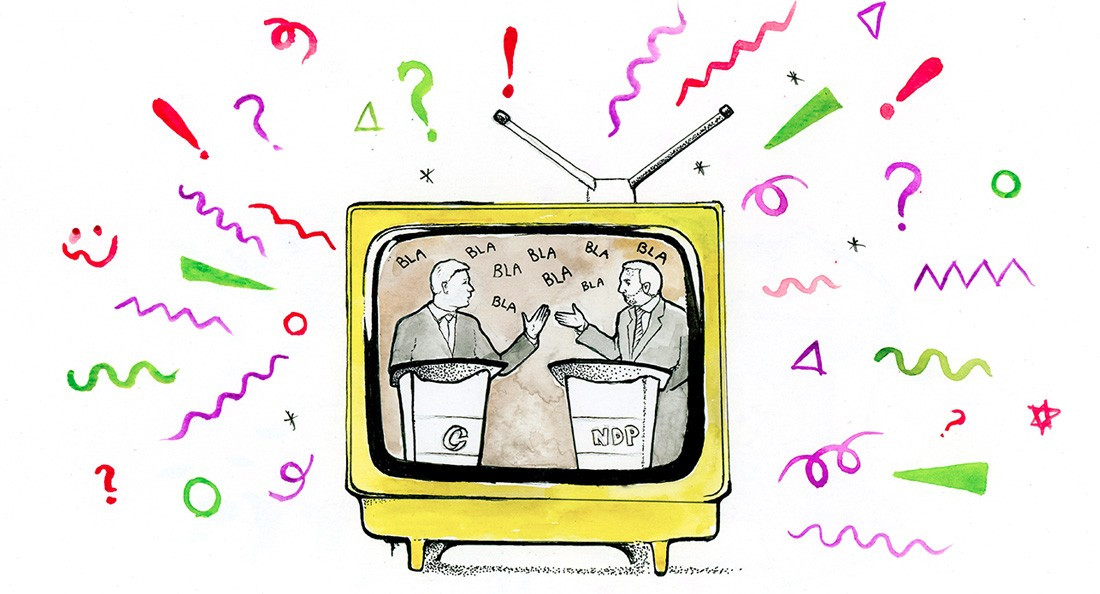What just happened?
If this provincial election felt strange to you, you’re not alone
With a provincial election behind us and a federal one fast approaching, it can be difficult to keep track of what has been promised by who in the past two weeks, let alone the many irregularities in this past provincial election.
Lynne Fernandez, who holds the Errol Black Chair for Labour with the Manitoba Branch of the Canadian Centre for Policy Alternatives, says she has a number of concerns with how this provincial election was conducted.
“Well, first of all, there was concern that it was called early,” she says, mentioning that the election was sandwiched between summer, school starting and a federal election. “It makes it difficult, particularly for the opposition parties, who don’t have as many resources as the incumbent party, to get out there and get their voices heard.
“Second of all, community groups have tried to hold debates so that people can hear all the parties’ perspectives on a variety of issues, and when one of the parties decides not to show up, community (organizers) are kind of perplexed by that ... and it seems sort of disrespectful as well.”
Michael Barkman, the chair of Make Poverty History Manitoba, can speak to that concern directly.
“We hosted a forum on Aug. 20, the Hunger and Poverty Forum, with our organization members, and no one from the Progressive Conservative party was able to come or show up. We were told in the days leading up to it that it didn’t work because of schedules,” Barkman says. The next day, premier Brian Pallister said that he didn’t attend because Make Poverty History was antagonistic towards his party.
“First, it’s disappointing that the PC party didn’t participate in a debate organized by a number of different community groups on a topic (poverty and access to food) that directly affects one in 10 Manitobans and indirectly affects everybody, so I think that’s really an issue of their participation in our democracy,” he says, “And second, we should be allowed in our province and our democracy to put forward policy ideas and to criticize policy ideas and not be viewed as antagonistic.”
Both Fernandez and Barkman note that these are not the only areas of concern.
“About two years ago, (the Government of Manitoba) changed a number of elections laws in Manitoba,” Barkman says, including now requiring two government-issued identification documents to vote. “Many folks living in poverty have a hard time accessing a birth certificate, which costs money, let alone photo ID, such as a driver’s license or passport, that costs even more.”
Barkman says the government also reduced a voter subsidy “that was an amount of money that parties got per voter. At the same time, they increased the overall individual limit that a Manitoban can donate from $3,000 to $5,000.”
“From our perspective, what that looks like is an even more challenging time for people who are low-income to run for office at all,” as candidates become “more reliant on private donors and donors with $5,000 to spare on a political party.”
Because the changes happened two years ago, he says the public has “kind of forgotten about it. But in this campaign cycle, it’s really impacting people’s ability to run for office or vote or engage with the election.”
He also notes that changes to the rules for third parties means that “when we talk about issues that any political party has spoken about whatsoever, that’s considered an election communication and subject to the law. As a group that consistently talks about issues that all parties have talked about, that makes it a challenging thing to participate as a third party.”
Fernandez also says the election happened before the Province clarified changes being made to education in Manitoba. She speculates that holding the election before the education reforms have been publicized may have been intentional.
“I think it would have helped people make up their minds.”
Published in Volume 74, Number 2 of The Uniter (September 12, 2019)







